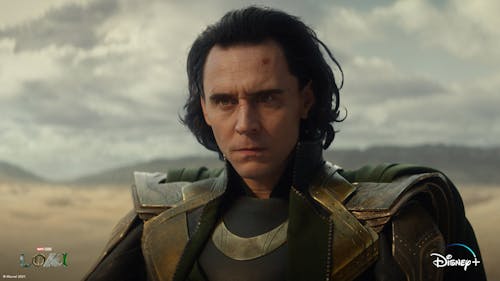There's nothing super about Marvel's lack of LGBTQ+ diversity

Can you name a gay superhero?
Think about it for a minute: Can you name a straight one? You probably don’t even need to think before having a handful ready. It’s sad but true that this is the trend with superhero films today.
Superhero movies don't have a great track record when it comes to diversity. Growing up, I never expected to see somebody who looked like me when heading to the movie theater. I still don’t.
When Marvel's "Black Panther" came out in 2018, it was groundbreaking for representation. It smashed records, as it became the biggest non-sequel opening weekend and biggest solo superhero launch of all time.
Not only was it commercially successful but "Black Panther" also cast a spotlight on the Black community and finally gave them the representation they deserve. One of Marvel’s newest releases, "Shang-Chi and the Legend of the Ten Rings," did the same for the Asian community, with Marvel’s first Asian superhero protagonist.
Still, superhero movies as a whole fail to show the significance of diversity and fail to uplift the voices of those who are not in the dominant group — this trend is proven by the lack of representation in older Marvel phases.
It’s shameful that it’s taken superhero movies this long to even reach this point when considering racial diversity. But when focusing on LGBTQ+ representation, it becomes instantly clear that there's a diversity problem there too.
Let’s start by breaking down what LGBTQ+ superheroes we do know about … or, at the very least, LGBTQ+ characters in popular superhero franchises: There’s Loki and Sylvie, both of whom received attention in the Disney+ series "Loki."
Then there’s Valkyrie, among other less prominent characters who are revealed to be part of the LGBTQ+ community in the Marvel comics, like Ayo and Korg. There’s the character Dreamer or Nia Nal on The CW Network’s "Supergirl," who is a transgender superhero played by a transgender actress, Nicole Maines.
When talking about this topic, we can’t forget about the groundbreaking representation that came about from superhero comics. To name a few characters, there are DC Comics’ heroes and villains within the LGBTQ+ community, like Poison Ivy, Harley Quinn, Catwoman, Batwoman, etc.
Batman’s right-hand man, Robin, was even recently shown accepting a date invite from another boy. The internet also broke when, this October, a "Superman" comic writer, Tom Taylor, revealed Superman’s son, aka the next-generation Superman, is bisexual.
And yet, superhero films flop when it comes to depicting the rich LGBTQ+ representation that many of their comics counterparts have. In fact, all of this representation comes from TV (which is still severely lacking) and comics that don't receive the level of attention that the blockbuster movies do.
As far as movies go, there's representation in "Deadpool," including characters like Negasonic Teenage Warhead and Yukio, with Deadpool himself being pansexual. There's also Marvel’s first openly gay superhero, Phastos, who made his debut in "Eternals." Not much to go on, is it?
Marvel hasn't always been successful with the little representation there is in their films, either. Let’s not even talk about the embarrassing attempt that Marvel made in "Avengers: Endgame," where they had a grieving man talk about his husband in therapy for just a few seconds … which they called LGBTQ+ representation.
There's still one big question about the lack of representation in superhero movies when there is so much in comics: Why? Why are people so reluctant to portray LGBTQ+ individuals as heroic or as role models? Why are we still forced to sit through the same cookie-cutter heterosexual, cisgender superhero stories back to back to back?
When kids head to the movie theater, they are sold a specific idea of what a superhero looks like. For many years, that image was that of a white, able-bodied, cisgender, heterosexual man. This was defined as the image of the perfect individual, a real hero and someone who was selfless and deserving of victory.
But that time should be behind us: Movies need to show kids that they can all be heroes, regardless of who they love.
While many conservative parents will probably react negatively to showing a gay superhero on screen, and certainly one in a leading role, kids need this representation in order to realize that they're normal and there’s nothing wrong with them.
When I was younger, it would have gone a long way to see that the amazing hero that saves the day could be just like me. If superhero movies don't include positive representation going forward, kids won't be able to see themselves in these roles, making them feel unworthy.
Superhero movies have the power to change a lack of self-worth in LGBTQ+ kids and influence a whole generation — if they would just take that chance.
The lack of LGBTQ+ representation in superhero movies erases a whole group of people from a universe in which they could shine and finally show a generation of kids that their feelings are valid. It also has the power to influence many people’s opinions on the LGBTQ+ community.
Representation can help assert to large audiences that the LGBTQ+ community deserves the exact same rights and opportunities as their cishet counterparts. It might seem like a non-issue to those who aren't affected by a lack of visibility, but for those in the community, it's significant.
After all, how are we supposed to be seen as strong, heroic and courageous if we aren't seen at all?



